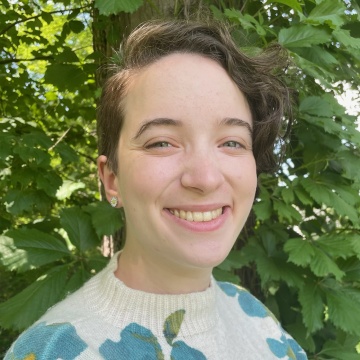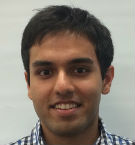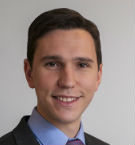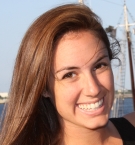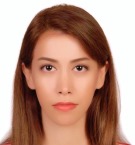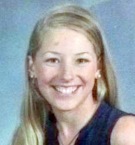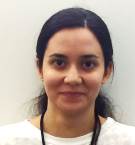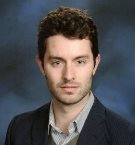Functional Neurological Disorder Research Group
Research Contact Information
Explore This Lab
Featuring Dr. David Perez, MD, MMSc, FND Unit Director at Mass General and patient Kyla Madonna Kenney.
After a young woman experiences unexplained leg weakness and loses her ability to walk, she is evaluated and treated in the Functional Neurological Disorder Outpatient Clinical Program, led by Dr. David Perez.
Overview
The Functional Neurological Disorder Research Group uses advanced structural and functional brain magnetic resonance imaging techniques to study the biological basis of Functional Neurological Disorder (FND) and related conditions.
Patients with functional neurological symptoms, including functional (dissociative) seizures, functional movement disorder and functional weakness, experience symptoms that are common yet incompletely understood.
The mission of the Functional Neurological Disorder Research Group at Massachusetts General Hospital, working in collaboration with researchers at the Martinos Center for Biomedical Imaging and others within the Harvard Medical School hospital community, is to characterize brain circuit abnormalities in Functional Neurological Disorder that specifically relate to symptom severity, disease risk factors and prognosis (treatment response).
Longitudinal studies also aim to probe brain mechanisms of treatment response.
David Perez, MD, MMSc, is a dual-trained Neurologist-Psychiatrist and Cognitive-Affective Neuroscientist. Clinically, Dr. Perez works in the Functional Neurological Disorder Unit within the Division of Cognitive Behavioral Neurology at Mass General to diagnose and treat patients with Functional Neurological Disorders. Dr. Perez is also affiliated with the Division of Neuropsychiatry in the Department of Psychiatry.
Media
Study Finds Evidence Supporting A Trauma Subtype Of Functional Neurological Disorder
In Frontiers in Psychiatry, researchers at Massachusetts General Hospital report evidence for a clinically significant trauma subtype of FND, based on the high symptom burden of comorbid PTSD or childhood abuse, and the low physical health of comorbid PTSD.
Study Provides Insights on How Early Life Trauma Can Contribute to Functional Neurological Disorder
In a new study published in Molecular Psychiatry, a research team led by Ibai Diez, PhD and David Perez, MD, MSSc, examined the brains of individuals who experienced early-life trauma, some with FND and others without the condition. The findings may provide a better understanding of what happens in the brains of some patients with FND, as well as those with various other trauma-related brain disorders.
White Matter Is Altered in Functional Neurological Disorder
Using a novel method of analyzing MRI scans, neurologists at Massachusetts General Hospital identified microstructural differences in white matter between 32 patients with FND and 36 healthy controls.
The Role of Functional Neuroimaging in Functional Neurological Disorders
Dr. Perez speaks with Journal of Neurology, Neurosurgery & Psychiatry Podcast Editor, Elizabeth Highton about stepwise functional connectivity, a novel brain imaging technique, and how it might help us better understand the biology of functional neurological disorders.
What Can Neurology and Neurosurgery Learn from Psychiatry?
Video recording of a panel discussion with Bruce Price, MD, Ron Alterman, MD, Matcheri Keshavan, MD, and David Perez, MD, MMSc.
An Early Interdisciplinary Approach Is Vital with FND Patients
(Coverage of a recent paper authored by David Perez, MD, Kathleen McKee, MD, Nicholas Kontos, MD, and colleagues from Massachusetts General Hospital)
Motor functional neurologic disorders (FND)—previously termed “hysteria” and later “conversion disorder”—are exceedingly common and frequently encountered in the acute hospital setting. But despite their high prevalence, patients with motor FND can be challenging to diagnose accurately and manage effectively, say the authors. And, to date, there has been limited guidance on the inpatient approach to the neuropsychiatric evaluation.
BJM Talk Medicine podcast featuring Dr. Perez
Despite the prevalence of the disease, neurologists and psychiatrists can be wary of treating patients with FND. Assistant Professor David Perez (Massachusetts General Hospital, USA) discusses how FND sits between neurological and psychiatric disciplines, the relationship between poor health status and affective symptoms, and associations with grey matter volumetric profiles.
Brain alterations linked with symptoms of PTSD, functional neurologic disorders
Distinct structural alterations in cingulo-insular areas may be found in patients with symptoms of FND, as well as in those with post-traumatic stress disorder (PTSD) and/or those who experienced childhood adverse events, suggests new neuroimaging research.
Meet Our Research Team
-
![]()
- Department of Neurology
- Department of Psychiatry
-
![]()
- Co-Investigator
- Instructor in Radiology
-
![]()
Julie Maggio, PT, DPT, NCS
- Co-Investigator
- Neuro-Physical Therapist, Massachusetts General Hospital
-
![]()
Daniel Millstein, PhD
- Psychologist
-
![]()
Sara Paredes Echeverri, MD
- Postdoctoral Research Fellow
- Medical Doctor, Universidad de los Andes, Colombia
-
![]()
Andrew Guthrie, BS
- Research Assistant
-
![]()
- Co-Investigator
- Department of Neurology
-
![]()
- Co-Investigator
- Department of Neurology, Massachusetts General Hospital
-
![]()
Ellen Godena, EdM, MSW, LICSW
- Co-Investigator
- Social worker/psychotherapist, Massachusetts General Hospital
-
![]()
Julie MacLean, OTR/L
- Co-Investigator
- Neuro-Occupational Therapist, Massachusetts General Hospital
-
![]()
Jessica Ranford, MS, OTR/L
- Co-Investigator
- Neuro-Occupational Therapist, Massachusetts General Hospital
-
![]()
Jennifer Freeburn, BA, MA
- Co-Investigator
- Speech Language Pathologist, Massachusetts General Hospital
-
![]()
Christopher Stephen, MBCHB, MS
- Collaborator
- Assistant in Neurology, Massachusetts General Hospital
- Instructor in Neurology, Harvard Medical School
-
![]()
Alexa Goldstein
- Undergraduate Research Student
Alumni
-
![]()
Anna Larson, BS
- Former Research Assistant
- Graduate of University of Wisconsin-Madison
-
![]()
Priyanka Alluri, BA
- Former Research Assistant
- Graduate of Boston University
-
![]()
Johannes Jungjilligens, PhD
- Former Visiting Post-Doctoral Researcher
- University Hospital Knappschaftskrankenhaus Bochum, Ruhr University Bochum, Bochum, Germany
-
![]()
Vihang Nakhate
- Former Summer Research Student
- Medical Student, Harvard Medical School
-
![]()
Juan Pablo Ospina Botero, MD
- Former Postdoctoral Research Fellow
- Medical Doctor, Universidad de los Andes, Colombia
-
![]()
Isabelle Gilman
- Former Summer Research Student
- Undergraduate Student, Villanova University
-
![]()
Julie King
- Former Summer Research Student
- Undergraduate Student, University of Delaware
-
![]()
Rozita JalilianHasanpour, MD
- Former Post-Doctoral Research Fellow
- Graduate of Tehran University of Medical Sciences
-
![]()
Sara J. Makaretz
- Former Summer Research Student
- Undergraduate Student, Tufts University
-
![]()
Nassim Matin, MD, MPH
- Former Post-Doctoral Research Fellow
- Medical Doctor, Tehran University of Medical Sciences, Iran
-
![]()
Benjamin Williams, BS
- Former Research Assistant
- Graduated from Brown University
Research Projects
Neurobiology of Motor Functional Neurological Disorders and Related Conditions
This study uses structural and functional neuroimaging techniques, in conjunction with self-report and research administered questionnaires, to study brain-symptom, brain-disease risk, and brain-prognosis relationships in patients with functional seizures, functional movement disorder, functional weakness and related conditions. At present time, we are only recruiting from individuals that have previously been evaluated in our Functional Neurological Disorder Outpatient Clinical Program.
Research Positions
Visiting Scholar Program: We are enthusiastic about offering external scientists the opportunity to join us in our daily research work and exchange new ideas and perspectives. We welcome individuals at different levels of clinical/academic training, with specific focus on providing students and trainees (undergraduate and graduate students, medical students, residents, and fellows) with exposure to clinical research in the fields of neurology and psychiatry, with a particular emphasis on clinical research in behavioral neurology/neuropsychiatry and Functional Neurological Disorders. Each application is handled and considered individually.
Publications
Visit PubMed to view recent publications by members of our research team.
Newsletter
Stay informed of the latest clinic and lab news by reading our latest newsletter.
Read the Fall/Winter 2022 newsletter.
Webinars
Support Our Work
Your gift to the Functional Neurological Disorder (FND) Unit and Research Program supports clinical care and research to better understand these conditions at the intersection of Neurology and Psychiatry and improve quality of life for patients and families.














